
Alpaca
Alpaca
Alpaca
Do you know an alpaca, an animal with soft fur? They are often bred in zoos and ranches, so many people will have actually seen them. Alpacas are similar to sheep, but they are actually members of the camelidae, and they have a long history of living with humans for thousands of years. Let's take a peek into their lives together in this article to find out what characteristics and secrets alpacas have!
Alpaca Basic Infomation
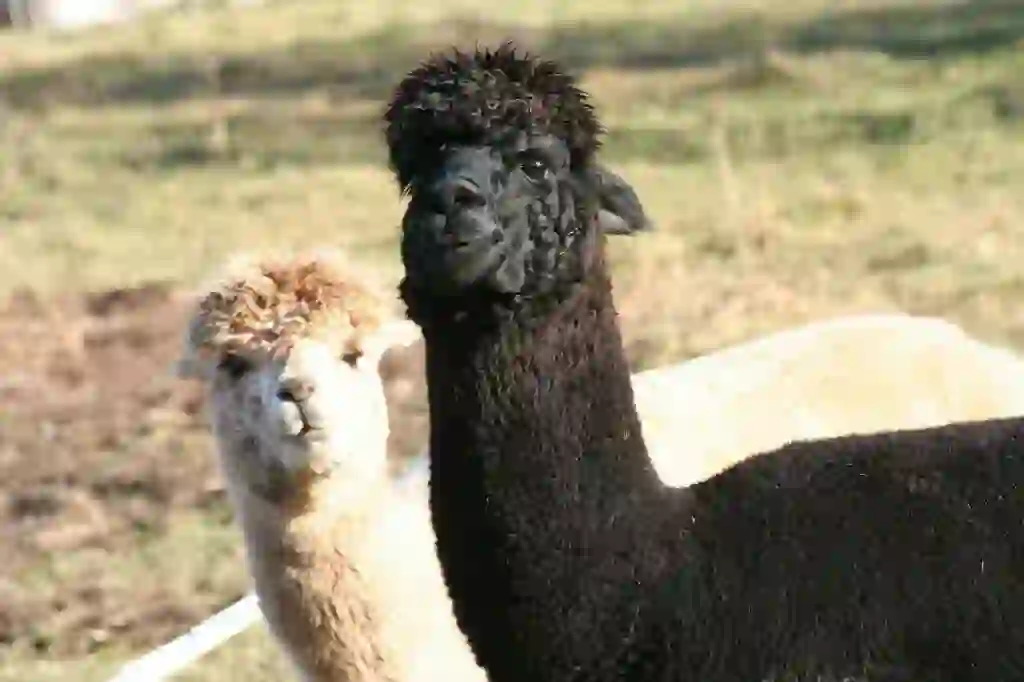
Mammalia-Artiodactyla-Camelidae.
Length:1.2~2.25m. Weight:55~65Kg.
Alpacas are a species of domestic animal belonging to the camelids family that are bred mainly around the Andes Mountains, and are thought to be domesticated from wild camelids thousands of years ago to obtain good quality hair.
The biggest feature is the soft and smooth coat that covers the whole body, and its fur is loved in many countries as a light and warm luxury material.
The Andes Mountains, where alpacas are bred, are at an altitude of 3000~6000m, and the maximum temperature during the day is over 30°C, and the minimum temperature at night is about -15°C. In addition, it is a harsh environment where food is not plentiful.
Even in such an environment, alpacas, which grow healthy with little food and produce high-quality hair, are very valuable to local people and support people's lives both now and in the past.
Males of alpacas reach sexual maturity at about 30~36 months of age, and females reach sexual maturity at 12~15 months of age. Breeding is done once a year, the gestation period is about 242~345 days, and alpaca mothers usually give birth to one baby in one birth.
Newborn alpaca babies weigh about 5~6Kg, and babies grow up drinking their mother's milk until they are about 6~8 months old.
Alpaca Q&A

Where does the alpaca get its name?
I did some research on the name "alpaca", but I didn't know the exact origin or etymology.
One possibility, however, is that the word alpaca is Spanish, and that the etymology of the word is probably derived from the Aymara word "allpaca" and that it has something to do with the Quechua word "p'ake", which means "yellowish red".
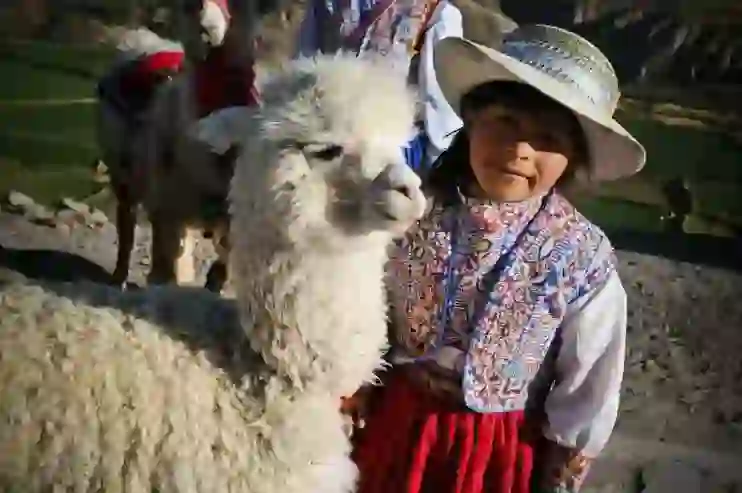
Why do alpacas live there?
Alpacas are bred in the highlands of the Andes Mountains, mainly in South America.
The wild camelids, the ancestors of alpacas, are thought to have lived around Canada in today's geography.
Camelids that later migrated from Canada to Asia evolved into "dromedaries" and "Bactrian camels", and those that migrated to South America evolved into "vicunas" and "guanacos".
After that, vicunas and guanacos were domesticated around the Andes Mountains, and it is thought that they became the current "alpacas" and "llamas".
By the way, alpacas are currently bred all over the world (USA, Switzerland, New Zealand, etc.) because of the low cost required for breeding and the ability to obtain high-quality hair.
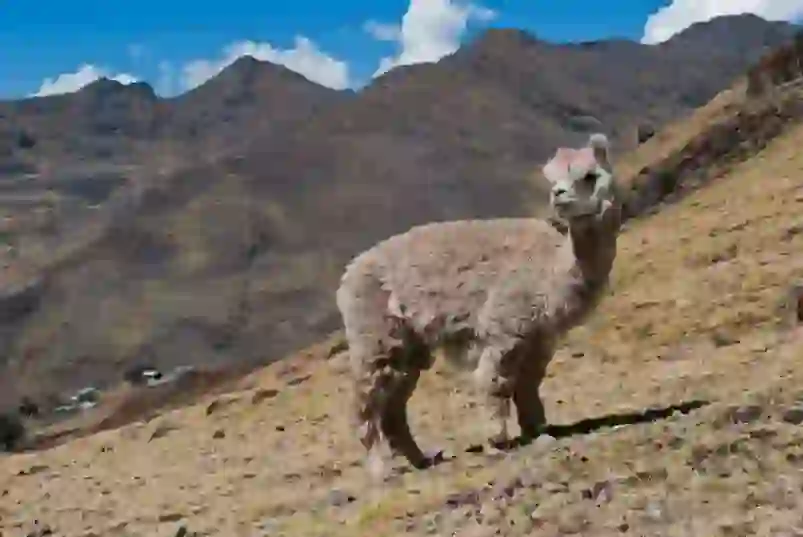
What do alpacas eat?
Alpacas are herbivorous animals.
Around the Andes Mountains, they graze alpacas, so they feed on grasses and mosses that grow in grasslands.The zoo feeds on dry grasses (such as timothy and alfalfa) and herbivore pellets.
By the way, alpacas are a species of ruminant that repeatedly returns food from the stomach to the mouth and chews it before swallowing, just like cows and goats.
Therefore, if you observe the alpaca closely, you will find that it constantly muffles its mouth to ruminate.
It also looks like it has magnificent front teeth, but in fact, the front teeth of the alpaca only grow down.
Alpacas have no upper front teeth, but their gums are hard and strong, and they use their lower front teeth and upper gums to chew and eat grass.
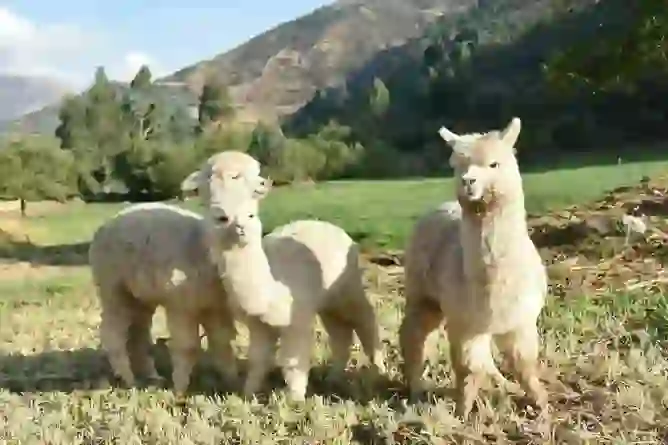
Are there wild alpacas?
Alpacas are domesticated wild camelids (vicunas, guanacos).
Since they are domestic animals rather than wild animals, there are basically no wild alpacas.
However, alpacas in the Andes are free-range all year round, so the alpacas in the Andes Mountains may be called "semi-wild alpacas" in a sense.
By the way, the wild camelid "vicuna" that lives in South America is 1.3~1.5m long and weighs 30~45kg, which is slightly smaller than alpacas, and its soft and pleasant to the touch fur is treated as the highest quality.
"Guanaco" is 2~2.3m long and weighs about 80~120Kg, which is larger than an alpaca.
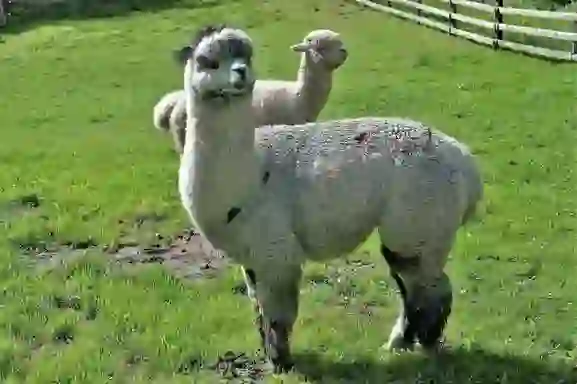
What are the characteristics of alpaca hair?
Alpaca hair is very thin to survive the harsh environment of the Andes Mountains, and is softer, moister and smoother than sheep hair.
It has a cavity inside the hair that allows air to be stored, so it has excellent heat retention, but it also has the property of releasing extra heat when it is hot.
Therefore, alpaca hair is used in clothing such as sweaters, cardigans, scarves and socks in various countries.
In fact, there are two types of alpaca hair: "huacaya" and "suri".
Huacaya refers to hair that becomes muffled like a stuffed animal, and suri refers to hair that is thinner and longer than wakaiya, and has soft and shiny hair.
Suri are rare because most of the alpaca hair produced is huacaya, but suri are said to be more suitable for knitting.
Many people have an image of white when it comes to alpaca hair, but in fact, it is known that there are more than 25 different colors of alpaca hair.
By the way, the hair of an alpaca that is sheared for the first time in life is called "baby alpaca", and it is considered to be one of the most valuable and high-class alpaca hairs because it can only be removed once from one alpaca.
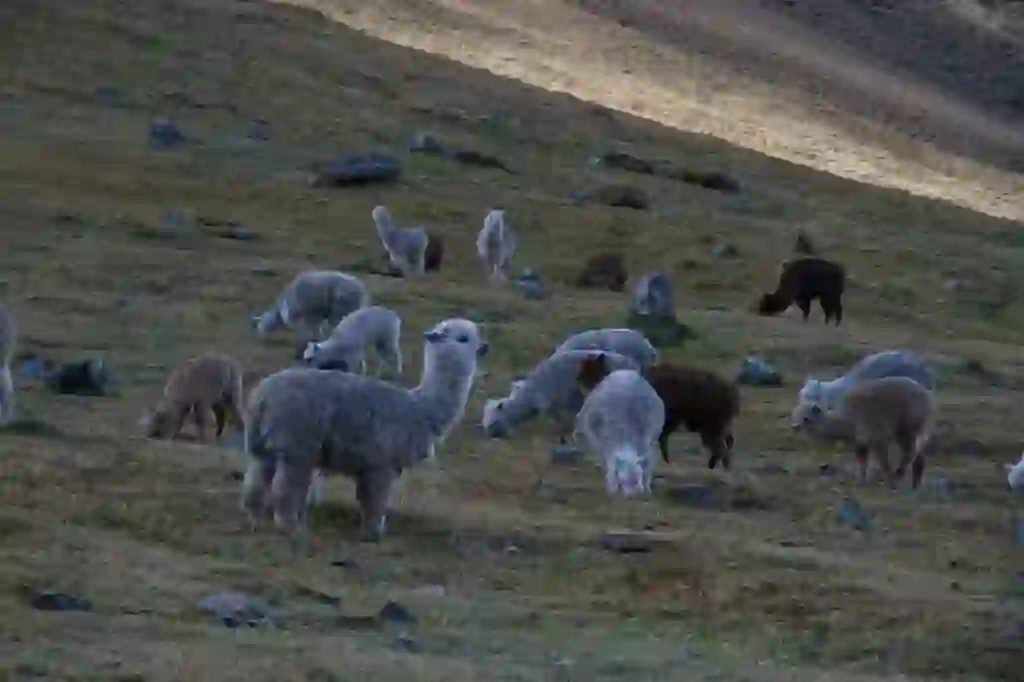
What kind of personality does an alpaca have?
Alpacas are basically very timid, but they also have a mysterious personality that has a curious side.
Although they are timid, if they are raised from a young age, they are easy to miss, and when they get used to it, they will let you touch your body and eat food from your hands.
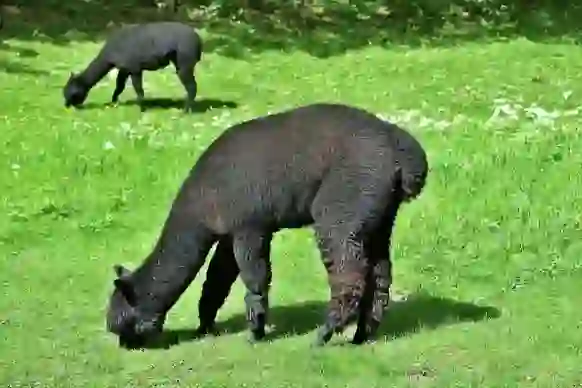
Why do alpacas have long necks?
Unfortunately for now, it is unknown why alpacas have long necks.
By the way, it is also not clear why camels, which are animals of the camelid family like alpacas, have long necks. However, there are several theories as to why camels have long necks.
①Remnants of ancestors who ate leaves at high places like giraffes.
②The neck was lengthened to keep the head away from the heat-covered ground and to protect it.
③As a result of the longer legs to quickly escape from the enemy, the neck also became longer to eat the grass growing on the ground.
Perhaps the reason why alpacas have long necks is hidden in these theories.
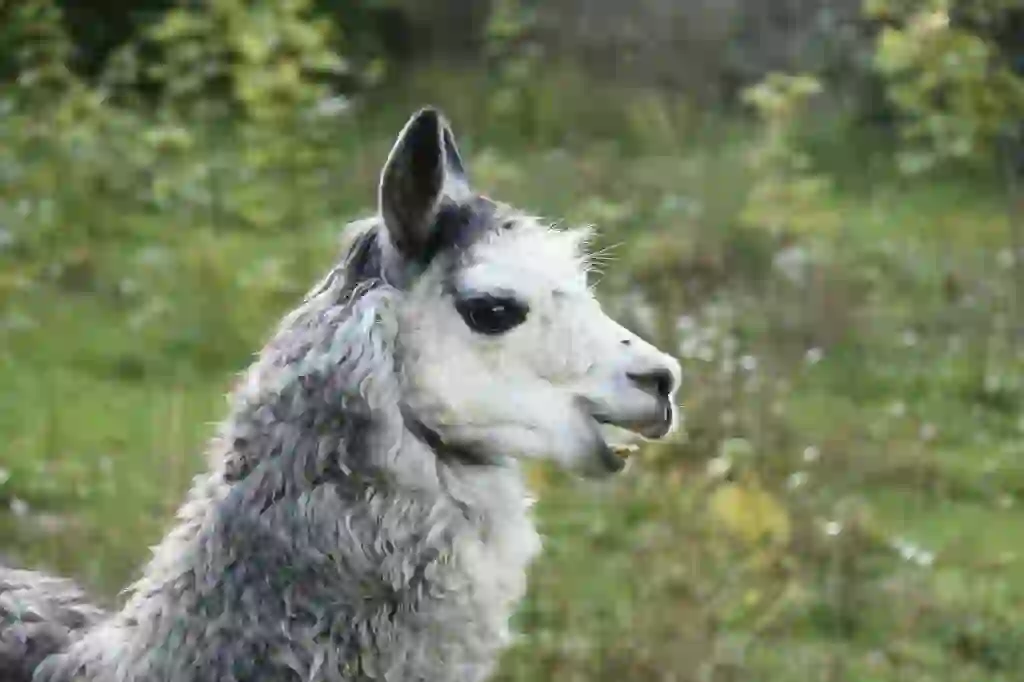
Is it true that alpaca saliva smells?
It's true.
To be precise, what alpacas vomit is not "saliva" but "gastric juice", and alpacas have a habit of vigorously spitting gastric juice at their opponents when they feel threatened or angry.
This is a habit found in other camelids such as llamas and camels, and is the only weapon for camelids that do not have weapons such as claws and fangs.
The stomachs of alpacas, ruminants, always contain food that is in the process of being digested.
The gastric juice containing the food in the process of digestion is very smelly and contains a large amount of fine grass fragments, which can be disastrous if you spit it on your clothes.
It is said that alpacas often have a unique expression in which their ears are turned back and their lips are turned over to show their teeth before spitting gastric juice.
Alpacas are timid animals, so they don't vomit gastric juices unless they have something very special to do. However, when you are near alpacas, it is recommended to pay attention to their facial expressions and behavior, just in case.
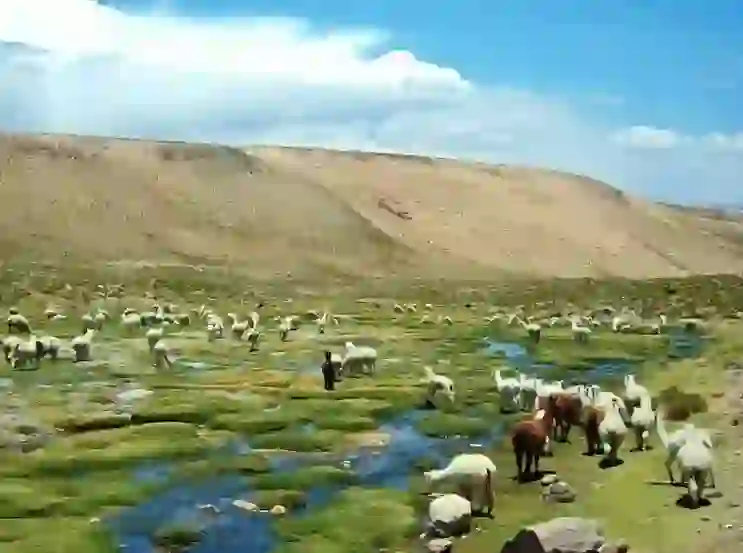
Can alpacas be kept as pets?
When breeding rare animals at home, it is necessary to follow the established laws in some countries. This time, we will introduce whether it is possible to breed alpacas at home in Japan.
Alpacas are domestic animals that are commonly kept and bred in Japan zoos and ranches, and it is thought that individuals can keep them as pets.
However, depending on the prefecture or municipality where you intend to breed it, some kind of notification may be required.
At a minimum, if you want to keep alpacas, you need a shed large enough for the alpacas to rest and enough grounds for the alpacas to roam.
Since the amount of food eaten is small for the size of the body, it is considered that the food cost is not so much.
By the way, I looked up the price of alpacas, but I didn't know the exact price.
It is only reference information, but in the United States, where there are people who keep alpacas as pets, the average price seems to be about 2.5 million yen per animal.
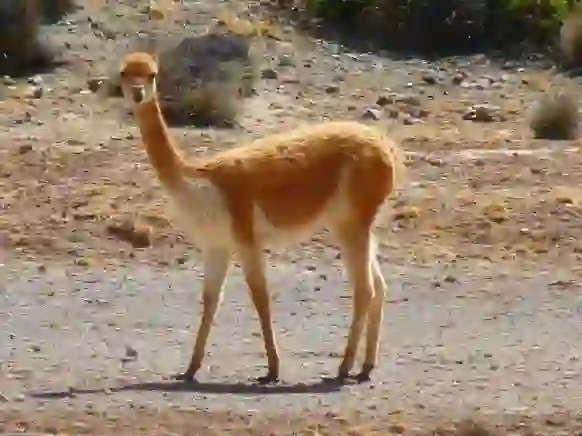
Are there places to see alpacas in Japan?
Alpacas are bred at many zoos such as Ueno Zoo in Tokyo, Kushiro City Zoo in Hokkaido, and Nagasaki Biopark in Nagasaki Prefecture.
In addition, there are farms that raise alpacas in various places, such as Yatsugatake Alpaca Farm in Nagano Prefecture and Nasu Alpaca Farm in Tochigi Prefecture, and some facilities offer feeding experiences and alpaca rentals.
If you want to interact with alpacas, you should visit these facilities.
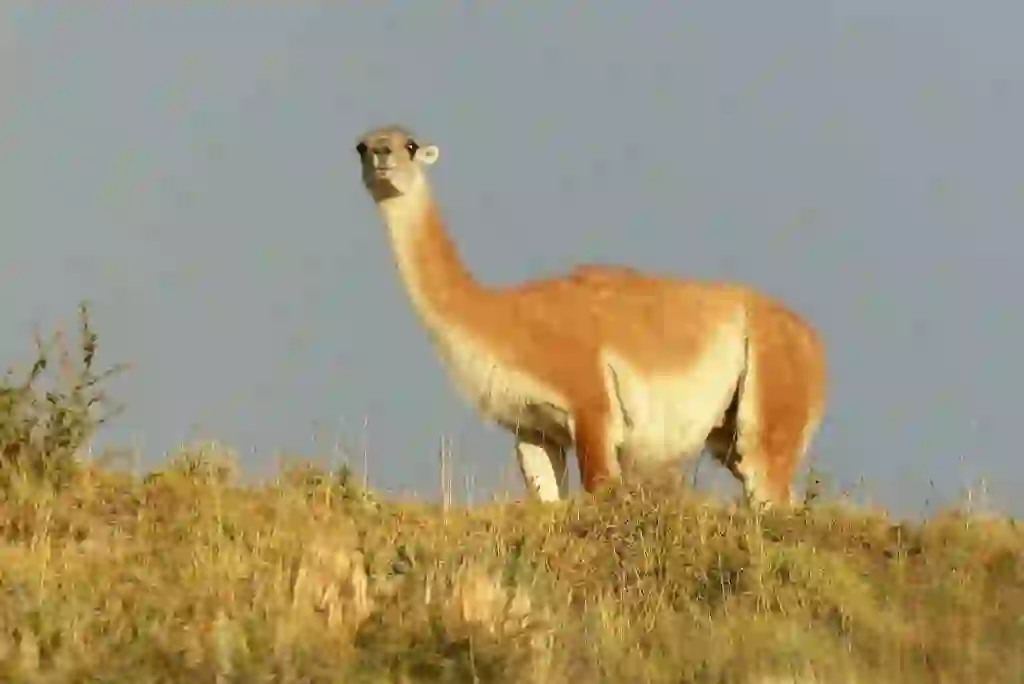
What is the lifespan of an alpaca?
It is said that the lifespan of alpacas is about 15~20 years.
However, it often leads to digestive diseases and pneumonia, and when bred in countries hotter and more humid than the Andes Mountains, it seems that heat stroke and heat stroke often occur and die suddenly.

Would you like to become a part of the 'Animalbook.jp'?
Turn your knowledge into Q&A and share it with the world. ※Publication will be activated after purchase. Let's share information together!
Alpaca Type of List
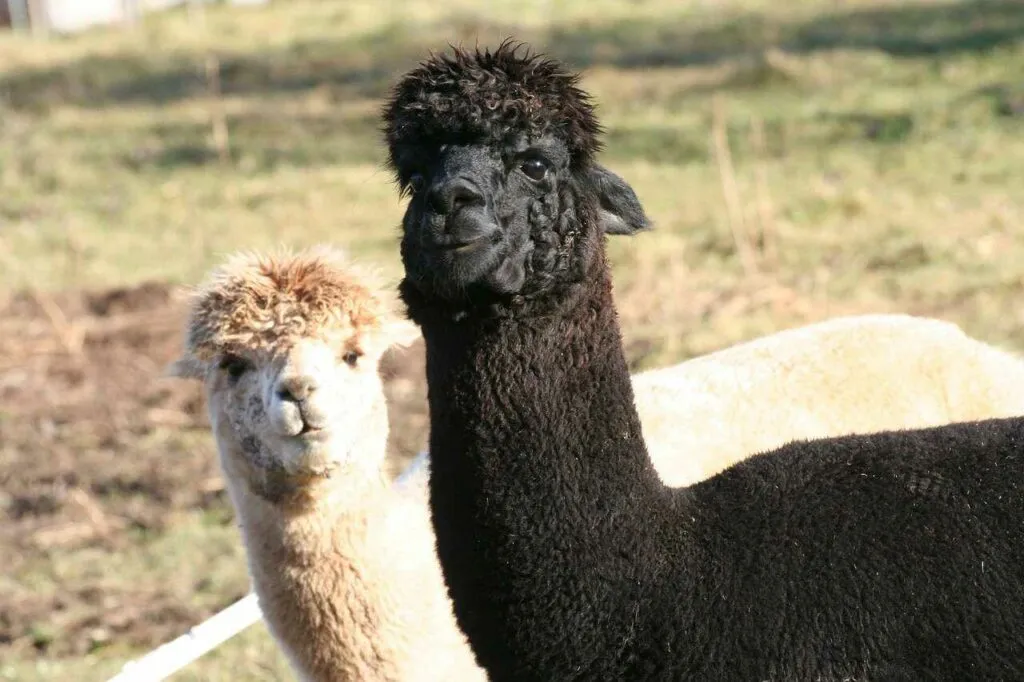
- Alpaca
Information
Congratulations! You are the first commenter!

Create Your Favorite List!
Alpaca
Save the animals you love! Build your own list to quickly revisit your favorites later.

Would you like to leave a comment?
※Please note: This is for the purchase of rights to post comments within the article.
Find Your Favorites!
Our shop offers a unique and attractive selection of goods themed around various animals.
Alpaca References

- 那須アルパカ牧場「アルパカとは」 https://nasubigfarm.com/alpaca/
- 那須アルパカ牧場「アルパカ毛について」 https://nasubigfarm.com/alpaca/hair.html
- トータス株式会社「繊維用語集 アルパカウール」 https://www.ttsmile.co.jp/glossary/category/natural/animal/alpaca.html
- 動物検疫所「偶蹄類の動物の家畜衛生条件」 https://www.maff.go.jp/aqs/hou/require/guteirui.html
- Bibgraph「スウェーデンのアルパカの疾患と死因:遡及的研究」 https://bibgraph.hpcr.jp/abst/pubmed/31205721
- Online Etymology Dictionary「alpaca (n.)」 https://www.etymonline.com/search?q=alpaca
- 公益財団法人一宮地場産業ファッションデザインセンター「■連載 縄文以来の伊達心⑪ 高度3~6千に生息するアルパカ」 https://www.fdc138.com/tex&fas/22/02/06date.pdf
- みんぱくリポジトリ「アンデスのラクダ科動物とその利用に関する学際的研究 : 文化人類学と遺伝学の共同」 http://doi.org/10.15021/00001662
- 那須どうぶつ王国「アルパカ」 https://www.nasu-oukoku.com/animals/farm/alpaca/alpaca.html
Alpaca Introduction of media used
出典:https://www.pexels.com/ja-jp/photo/4717465/

出典:https://pixabay.com/images/id-4810655/

出典:https://pixabay.com/images/id-2363496/

出典:https://unsplash.com/photos/U4-FDxnXSYs

出典:https://pixabay.com/images/id-4563282/

出典:https://pixabay.com/images/id-3392792/

出典:https://unsplash.com/photos/d90sCjBplq8

出典:https://pixabay.com/images/id-3464629/

出典:https://pixabay.com/images/id-4342314/

出典:https://pixabay.com/images/id-537076/

出典:https://pixabay.com/images/id-43293/

出典:https://pixabay.com/images/id-3264662/
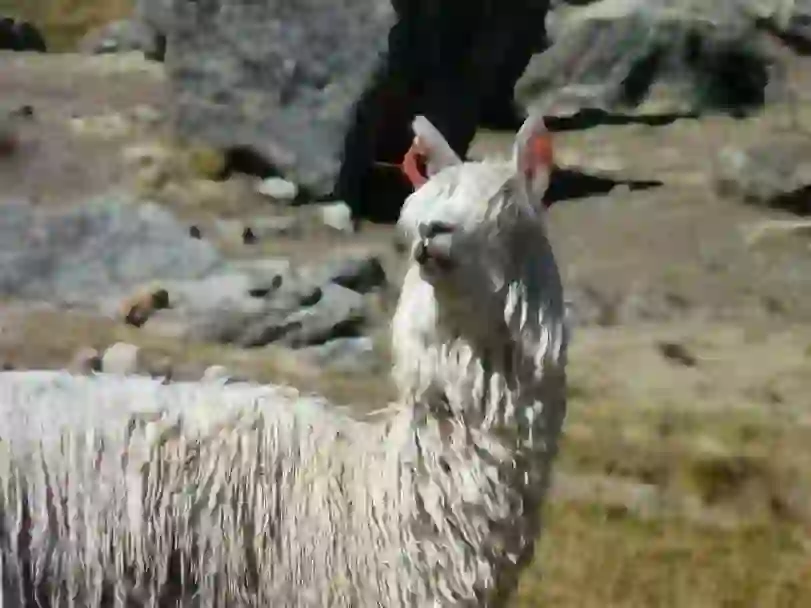
出典:https://pixabay.com/images/id-2580926/
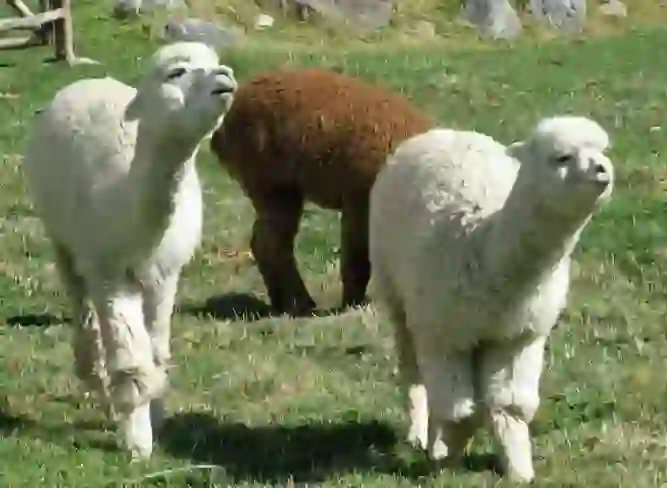
出典:https://pixabay.com/images/id-336154/
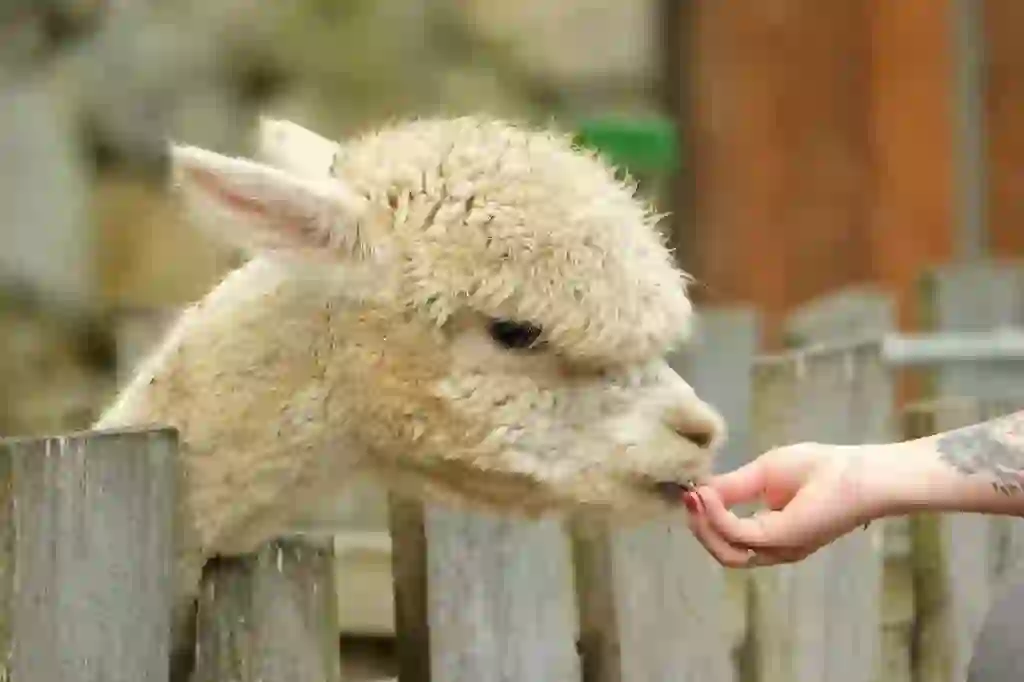
出典:https://pixabay.com/images/id-5564884/
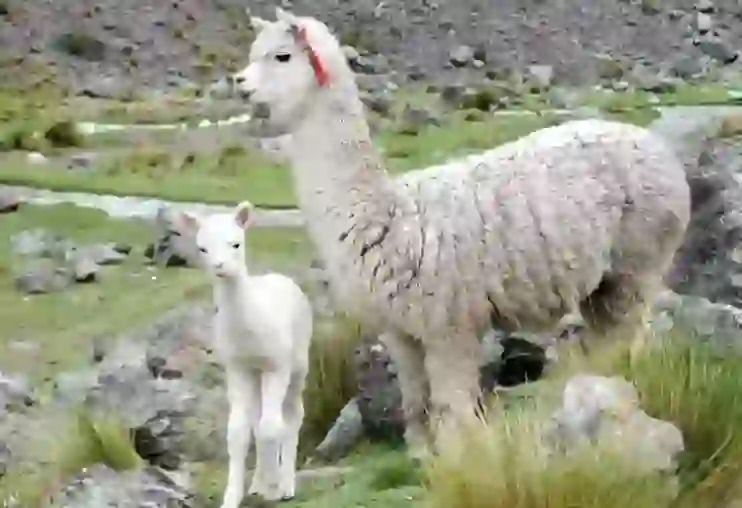
出典:https://www.pexels.com/ja-jp/photo/6215629/
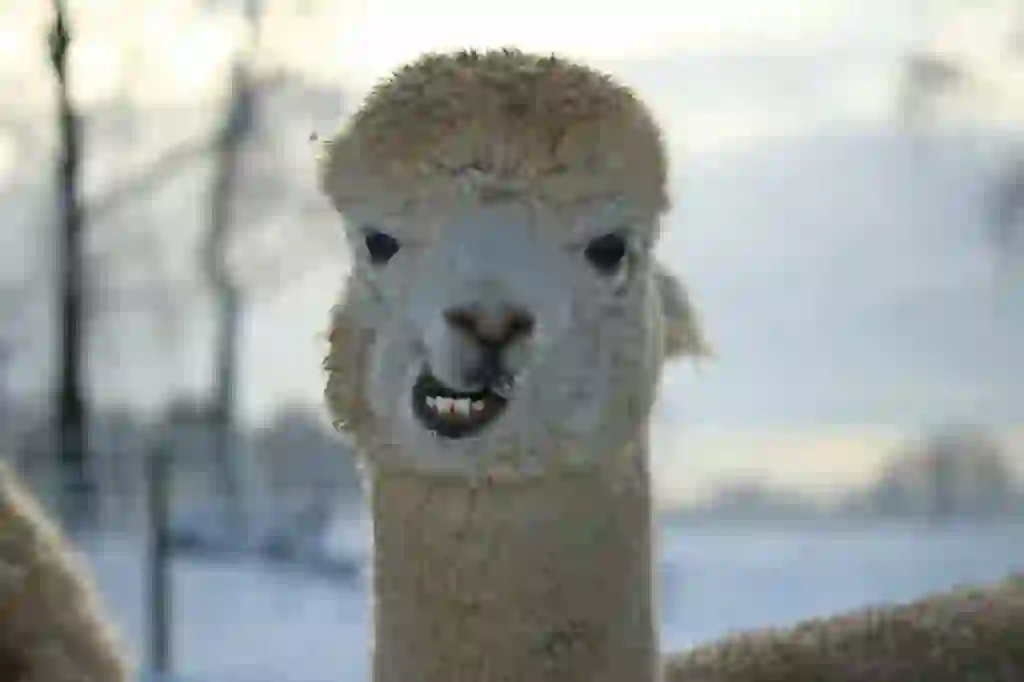
出典:https://pixabay.com/images/id-3974482/
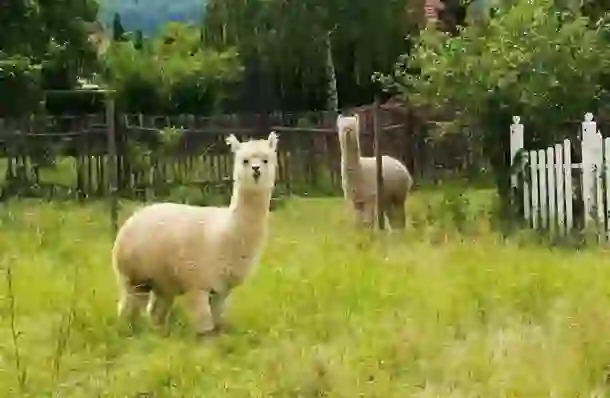
出典:https://pixabay.com/images/id-2907771/
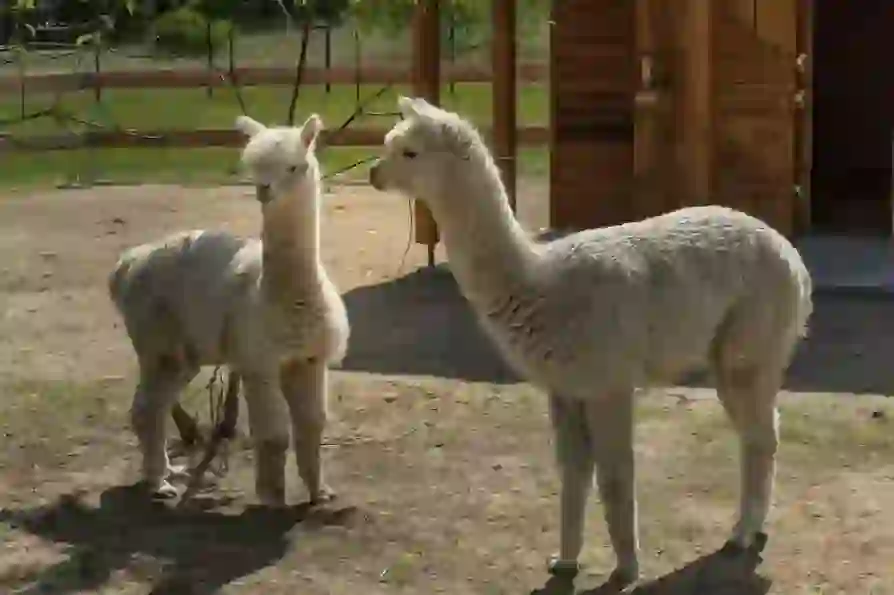
出典:https://pixabay.com/images/id-5203792/
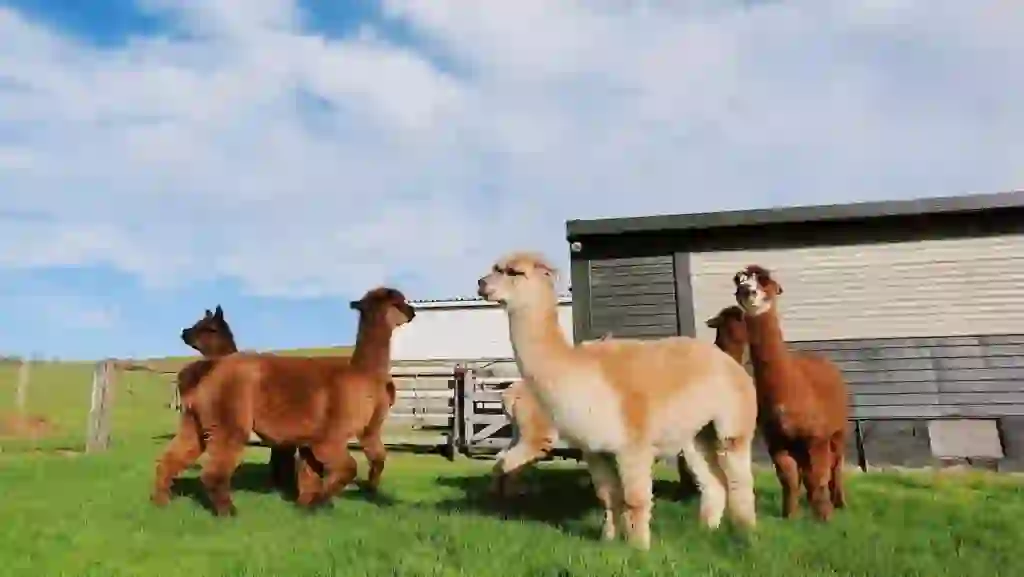
出典:https://pixabay.com/images/id-2580926/

Help Enrich Our Animalbook.jp with Your Media!
We are constantly looking to expand and enrich our Animalbook.jp with amazing photos and videos of animals. If you have any media that you'd like to share, please contribute and help us showcase the beauty and diversity of the animal kingdom. Your submissions will be credited and featured in our encyclopedia, reaching a wide audience of animal lovers.


















